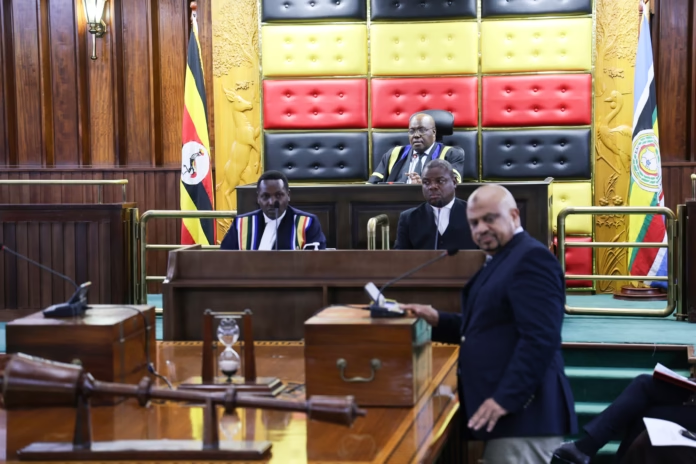
Insecurity and instability in eastern Democratic Republic of Congo continue to devastate the livelihoods of small-scale women traders along the Kamvira–Gatumba border, according to a new oversight report presented to the East African Legislative Assembly (EALA) in Kampala.
Reading the report during the plenary, EALA Women Caucus Chairperson Ann Itto said women at the DRC–Burundi crossing face serious challenges that has made the transborder trade cumbersome.
According to the report, the area experiences “security risks… particularly due to the instability in eastern DRC,” which has resulted in “frequent disruptions caused by conflict” that place traders at “considerable risk.”
The report notes that many women have suffered major financial losses when Congolese clients flee during unrest, leaving behind unpaid debts or abandoned goods. It adds that “many have suffered financial losses from unpaid loans extended to Congolese clients who fled the region or had their goods looted during periods of unrest.”
Women in trans-border trade also reported illegal charges for travel documents. The oversight mission documented cases where traders were asked to pay “5,000 Burundian Francs… for its issuance,” a practice the report describes as “illegal collection of fees for travel documents.”
“This report should really be transformed into action by the council of minister and also by the EAC secretariat because these are the same issues we’ve been talking about and have been brough to light,” said EALA MP from Uganda George Odongo.
The Gatumba border remains outside the East African Community’s One-Stop Border Post framework, resulting in fragmented and often obstructive customs processes. According to the findings, Kamvira/Gatumba “is not yet a fully operational One-Stop Border Post (OSBP)” and lacks harmonised procedures, creating “a range of legal, regulatory, and procedural obstacles that complicate trade and delay the movement of goods and people.”
The Caucus report warns that insecurity has driven many women into informal and dangerous crossing points as a means of survival. The situation, it states, has created “a general atmosphere… of chaos and uncertainty.”
“The short validity period of travel document, limited to just one month for frequent traders, adds to the burden. Some traders reported being charged illegal fees for these documents with payments of up to 5,000 Burundian Francs (FBu),” part of the report reads and that the early closure of the border further restricts trading hours, limiting economic activity and reducing opportunities for traders to operate efficiently.
The Caucus urged urgent infrastructure development, stronger security cooperation, and gender-responsive facilities to protect women whose livelihoods depend on the route.


